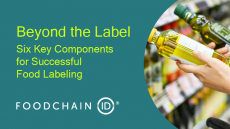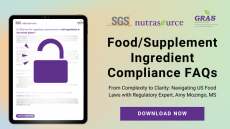Toxins detected in UK food chain
peanut butter and marzipan, were found to contain harmful toxins,
said the UK's food watchdog this week, following an annual survey.
Retailers rush to amend the situation.
After sampling 197 products from a range of retailers - for example, Waitrose, Asda, Tesco, Marks & Spencer - the Food Standards Agency (FSA) found aflatoxins - naturally occurring toxins - in 5 per cent of samples taken from nuts and nut-based products.
"Where aflatoxins above the legal limits were detected, the agency has taken action to ensure that these products are no longer available for sale," said the FSA in a statement.
Aflatoxins are produced by certain moulds growing on some food crops during production and storage. Occasionally consuming a small amount of aflatoxin contaminated food is unlikely to cause ill effects, says the FSA, however, aflatoxins have been shown to cause cancer in a number of animal species by damaging DNA.
"There is also some evidence to suggest they may be harmful to humans. Experts have recommended that aflatoxins in food should be reduced to the lowest levels achievable," added the watchdog.
The UK retailers that had the potentially damaging products on sale were quick to respond to the FSA survey. Waitrose, which had a batch of Brazil nuts that exceeded the regulatory limits, told the FSA: "We are well aware of the hazard presented by mycotoxins on nuts and in particular in-shell Brazil nuts, where you report a high level. Our records indicate that all these comprehensive precautions were carried out satisfactorily; so it is very disappointing that your laboratory should return such a high result."
Asda Wal-Mart UK rushed to defend itself, commenting on the salted pistachios in the shell found to have higher levels than the rules: "In defence of this particular instance our supplier has confirmed the following, the batch of pistachios in question was independently tested by the approved / authorised testing laboratory in Iran, the EU Port Health Authority facility and the independent accredited laboratory in the UK. Each of the above tests are sampled and tested according to Commission Directives 1525/98 and 98/53 EC."
In the eyes of the increasingly cynical consumer, food safety, and the efficient checks and balances in the food safety chain, can not be underestimated. Despite a slight improvement in results compared to the previous study, the FSA survey of 197 products - carried out from November 2003 to March 2004 - suggests the monitoring of the controls in place to protect the consumer exposure to the toxins are still necessary.














